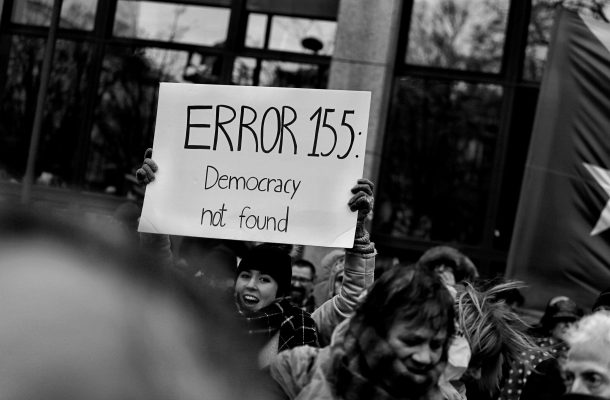This disappointing century

As 2019 came to a devastating close amidst the flames of a national bushfire crisis, there is cause to reflect not on the last decade but the dreary embers of the first two of the 21st Century.
There have been highs but these have been decades of disappointment and denialism pushing us to end of our patience and the edge of oblivion.
High hopes
Who can forget the lead ‘the year 2000’ capped by the Sydney Olympics and Paralympics? What a gilded doorway we seemed to be approaching – the ticking over of the millennium even had its own television show ‘Beyond 2000’ bursting with a charming naive optimism. Another program of my youth, This Fabulous Century, marvelled at how far we had come since 1900. Surely the next century would bring wonders to match?
But look deeper and not everyone shared a rosy view of the future and some crystal ball gazing from twenty years ago seems eerily prescient now. Spring cleaning my Canberra apartment amidst the smoke these holidays, I stumbled on some commemorative newspapers from 2000. The Good Weekend on 1 January 2000 lead with a series of in depth likely scenarios for 2015 presented to a policy conference held by the Australian Chamber of Commerce and Industry in September 1999.
These were key scenarios they saw for the future we occupy now:
First Global National: Australia shows leadership in a silicon valley world. A vital young country reinvents itself to capitalise on the massive transformations of business and society. Our cyber-savvy firms sparkle on wall-street, wealth is shared and the arts flourish.
Sound the retreat: Globalisation falls apart, trade barriers are rebuilt, nationalism resurges,. We forge commercial partnerships with key nations, and drawing on our melting pot past, create a cultural gateway. Oz is the Switzerland of Asia.
Brave Old World: Over-reliant on tourism and glamorous-yet-scant biotech breakthroughs, we miss the global tide. Introspective and smug, the lopping of tall poppies resumes, fed by an attitude of ‘she’ll be right’. The economy falters and major brands move offshore.
Green is gold: About 2007, an eco-catastrophe puts the nation on a war style emergency footing. Skyscrapers sprout trees, good are produced from renewable resources with zero emissions. Profits and lifestyles are enhanced by a ‘whole systems’ economy designed to restore the balance of nature.
Do parts of the last three sound familiar?
Less obvious in a corner of the newspapers from that day was the news ‘Yeltsin to Quit’. For while we partied at the stroke of midnight in 1999 Vladimir Putin took power in a bloodless coup in Moscow and slowly sunk his fangs into the soft underbelly of a complacent democratic world, drunk at the prospect of a ‘new world order’ and the vaunted end of history.
There was no ‘end of history’, we just forgot its best lessons – the dangers of toxic nationalism, the failure of military conflict to resolve issues in the Middle East, the tenuous nature of the rule of law, the wisdom of international safeguards (like the Geneva Conventions) and torchlight given by liberal democratic ideals. Y2K was waiting round the corner, but it was democracy that was hacked, not some computer clocks.
A stark contrast
And here in Australia what a contrast 2020 is to the busy first decades of the century we left behind.
In the first two decades of the 20th century we landed the key national infrastructure of Australia for banking, industrial relations, defence, the capital city and a framework for governing a Commonwealth. Here are a few highlights:
1 – We linked ourselves and the world by telephone and telegraph. A trunk line between Sydney and Melbourne was opened as was a line between Adelaide to Melbourne while a transpacific telegraph linked Queensland and Canada;
2 – Commonwealth postal services were established, bank branches opened in post offices and stamps became interchangeable and uniform charge for mail agreed with the States;
3 – At a stroke of a pen all interstate tariffs disappeared and trade within the country doubled, income tax was introduced and an independent Commonwealth Bank came into being and became a central bank;
4 – The Commonwealth Conciliation and Arbitration framework was set up to manage industrial disputes and came up with the basic wage. A standard 44 hour week came into being in most states;
5 – The Commonwealth Institute of Science and Industry, forerunner to the CSIRO, was set up and the Commonwealth Parliamentary Library and Literary fund was established
Not all that nation building was unifying. We became enmeshed in a major war with shocking losses and a divisive debate on conscription which stunted national progress, while racism and the terrible treatment of Aboriginal people became hardwired into national policy at this time with appalling legacies for generations to come.
While it’s true the nation building of those days owes much to a new Federation, it’s still hard not to contrast this with the first decades of this century where we seem to have fallen into a slow decaying orbit.
And we can’t blame our loss of mojo on changes in Prime Minister. We’ve changed leader seven times since 2000 but the nations leadership swung eleven times between Barton, Deakin, Watson, Reid, Deakin, Fisher, Deakin, Fisher, Cook, Fisher and Hughes between 1900 and 1920.
Stumbling into the 21st century
Since 2000 we have seen the unravelling of the Commonwealth as trusted and competent. Complacency and gridlock replaced sound stewardship of our affairs. Our welfare safety is so decayed that basic allowances last rose in 1994.
The now near junked robo-debt fiasco has eroded faith in human service delivery. And troubled rollouts of well intended programs for NDIS, NBN and roof insulation shattered confidence in the Commonwealth as a delivery mechanism. We couldn’t even manage an online Census.
Meanwhile our political needle seems stuck in a groove. Almost twenty years after Tampa and 15 years after Cronulla, questions of immigration and race stoke division and distrust. More than a decade of inaction on climate change has frustrated the hopes of a generation and culminated in a sense of profound anger capped by the worst bushfire conflagration any of us can remember.
Our high moral ground in the region is eroded as we use our regional neighbours as dumping grounds for asylum seekers or wiretap their parliaments to gain advantage in trade negotiations. Meanwhile China builds credibility and capital with soft words underlying hard power and infrastructure development.
In the second decade of the 21st century fake is becoming the new normal. A photoshop century where fake news is matched by fake progress.
Welcome to fake government strategies with no life beyond a three year cycle or resources for implementation. The shelves of any policy analyst in Canberra groans under the weight of them.
We have had fake housing strategies, fake disability strategies, fake climate mitigation strategies and, saddest of all, a fake promise to listen to and come to just terms with First Peoples.
Welcome to fake infrastructure via a National Broadband Network with less processing power than the next generation of mobile phones leaving many a without a landline that works in a blackout or bushfire. As people queued at public phone boxes on the south coast over the last few days after the mobile network died this seems a bad idea.
The concept of Government ‘’reform’’ itself has taken on a sinister edge. For instance, instead of summoning hope Government might commit to renewing the frayed safety net and genuine job creation, each round of welfare ‘reform’ now conjures up harsh punitive measures that fail to address real problems of an economy with stalled wages, precarious employment and the loss of jobs to forces like automation.
Reform and ‘’efficiency’’ of government services just means outsourcing and yet more jobs cuts.
Meanwhile the absence of personal progress, under the weight of oppressive household debt and the grim grind of multiple jobs in the gig economy, has left a vacuum which we fill watching real people build fake dream houses. At least we live in the era of quality television – if you have the time to escape there are no end of box sets to buy, stream or download.
Nature abhors a vacuum so the void of substance is being filled by populist voices with rage, rants, misogyny, racism and simple solutions. These voices exist on the right and the left.
Perhaps hope lies with those sharp millennial young people turning 20 this year. Honed to tell truth from fiction by two decades of processing information overload and sorting gold from trash.
So hello roaring 20s. They could hardly be worse. Could they?
Craig Wallace is a policy manager and activist. His articles have been published in The Australian Financial Review, The Guardian, The Australian, ABC Ramp Up, Crikey and The Canberra Times. He tweets @CraigWtweets.















